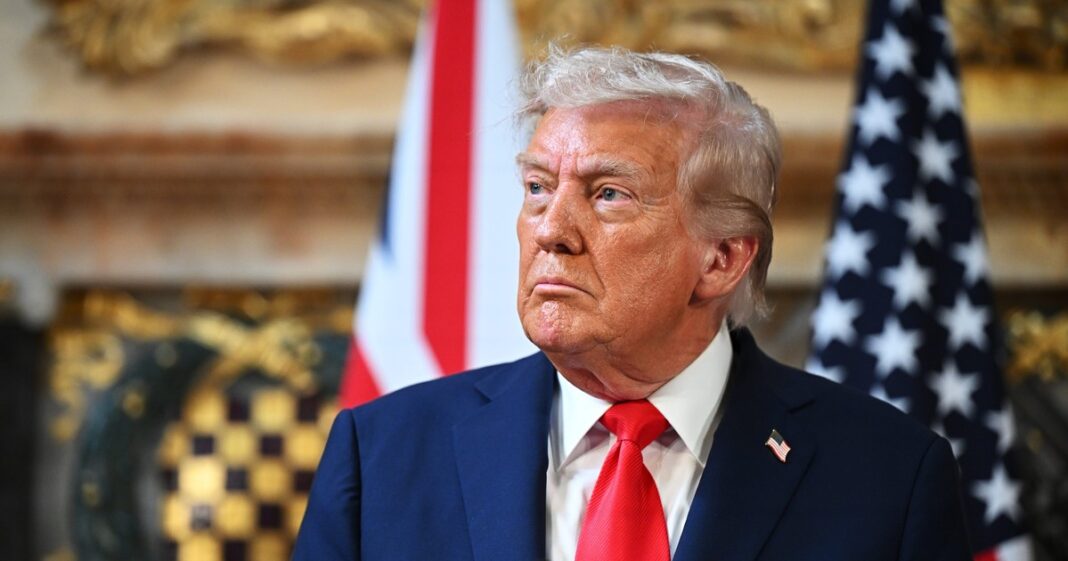The Complex Landscape of U.S.-China Trade Relations: A Closer Look
In recent months, the trade dynamics between the United States and China have shifted dramatically, with significant implications for the global economy. Former President Donald Trump has re-emerged in political discussions, sharing his views on this contentious relationship and advocating for strong retaliatory measures against China. Let’s delve into some key developments and their ramifications for markets and global trade.
Escalating Tensions and Hostility
Trump recently expressed concerns about an increasingly hostile China, particularly in the context of trade negotiations. He indicated that discussions with Chinese President Xi Jinping, originally slated to occur in South Korea, may be futile under the current circumstances. His remarks reflect a growing sentiment among U.S. officials that China is not negotiating in good faith, complicating any possibility for a smoother trade dialogue.
Tariffs and Trade Measures
In a bold move, Trump announced plans to impose a 100% tariff on Chinese goods, effective November 1. This controversial decision signifies a dramatic escalation in trade tensions. Tariffs are a common tool in international trade, used primarily to protect domestic industries by making imported goods more expensive. However, such measures can also lead to retaliatory actions by affected countries, potentially triggering a full-blown trade war.
On the same day, Trump declared that export controls on critical software would be enacted. The National Institute of Standards and Technology (NIST) characterizes critical software as essential for the functioning of various technologies, including web browsers and mobile operating systems. This move is aimed at safeguarding American technological interests but raises concerns about its broader implications for global tech markets.
Response to China’s Export Controls
Trump’s tariffs were partly in response to China’s announcement of its own export controls on rare earth metals. These materials are pivotal in the production of modern technologies, from electric vehicles to advanced military systems. The restriction on these resources potentially disrupts supply chains globally, leading to heightened market volatility.
Impact on Financial Markets
The immediate aftermath of Trump’s announcements was palpable in financial markets. Investors reacted swiftly, with oil prices hitting a downturn alongside stock values. Brent crude and U.S. crude benchmarks fell by approximately 4%, reflecting fears that intensified tariffs could hamper economic growth and diminish energy demand. The 10-year Treasury yield also saw a notable drop, signaling increased investor caution.
Market Reaction to Tariff Anxiety
On the day following these trade developments, U.S. stock indexes reflected the prevailing anxiety. Analysts highlighted a palpable “risk-off” sentiment, where investors gravitated towards safer assets as uncertainty loomed. Major economic indicators saw significant shifts, with many speculating the long-term impact these moves could have on corporate profitability and broader economic health.
Perspectives from Economists
Economists weigh in on the ramifications of Trump’s trade policies. Jos Torres, a senior economist at Interactive Brokers, mentioned that the president’s actions are sending ripples through markets, leading traders to seek refuge in stable assets. The potential for heavy tariff increases could dampen corporate earnings and color the economic outlook negatively, prompting further market corrections.
Notably, Trump’s earlier strategies, which involved a preliminary trade agreement with China that entailed reduced tariffs for a limited period, had temporarily buoyed stocks. However, the reversal in sentiment underscores the fragile nature of international trade agreements and the swift changes in market dynamics fueled by political rhetoric.
Broader Implications for Global Trade
The potential increases in tariffs on Chinese imports, coupled with China’s restrictive measures, illustrate a broader trend of escalating trade hostility. Trump’s statement about various countermeasures under consideration highlights the complex and often unpredictable nature of trade diplomacy.
The fallout from these developments not only affects bilateral relations but can also create ripple effects throughout the global economy. Countries could find themselves grappling with supply chain disruptions or inflated prices, forcing them to assess their own trade dependencies and strategies.
In this ever-evolving landscape, market participants remain vigilant, continually reassessing their positions and strategies in response to announcements and geopolitical shifts. As such, the relationship between the U.S. and China remains a focal point for economic analysts, policymakers, and business leaders alike, underscoring the intricate ties that bind global markets in today’s interconnected world.



